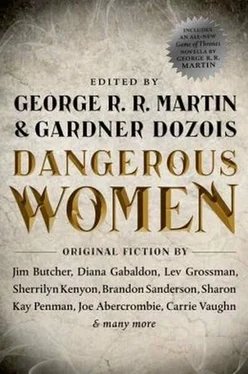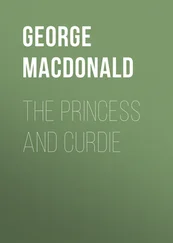George Martin - The Princess and The Queen, Or, The Blacks and The Greens
Здесь есть возможность читать онлайн «George Martin - The Princess and The Queen, Or, The Blacks and The Greens» весь текст электронной книги совершенно бесплатно (целиком полную версию без сокращений). В некоторых случаях можно слушать аудио, скачать через торрент в формате fb2 и присутствует краткое содержание. Год выпуска: 2013, ISBN: 2013, Издательство: Tor Books, Жанр: Эпическая фантастика, Фэнтези, на английском языке. Описание произведения, (предисловие) а так же отзывы посетителей доступны на портале библиотеки ЛибКат.
- Название:The Princess and The Queen, Or, The Blacks and The Greens
- Автор:
- Издательство:Tor Books
- Жанр:
- Год:2013
- ISBN:9780765332066
- Рейтинг книги:4 / 5. Голосов: 1
-
Избранное:Добавить в избранное
- Отзывы:
-
Ваша оценка:
- 80
- 1
- 2
- 3
- 4
- 5
The Princess and The Queen, Or, The Blacks and The Greens: краткое содержание, описание и аннотация
Предлагаем к чтению аннотацию, описание, краткое содержание или предисловие (зависит от того, что написал сам автор книги «The Princess and The Queen, Or, The Blacks and The Greens»). Если вы не нашли необходимую информацию о книге — напишите в комментариях, мы постараемся отыскать её.
The Princess and The Queen, Or, The Blacks and The Greens — читать онлайн бесплатно полную книгу (весь текст) целиком
Ниже представлен текст книги, разбитый по страницам. Система сохранения места последней прочитанной страницы, позволяет с удобством читать онлайн бесплатно книгу «The Princess and The Queen, Or, The Blacks and The Greens», без необходимости каждый раз заново искать на чём Вы остановились. Поставьте закладку, и сможете в любой момент перейти на страницу, на которой закончили чтение.
Интервал:
Закладка:
Hundreds fled in terror from her flames… but hundreds more, drunk or mad or possessed of the Warrior's own courage, pushed through to the attack. Even at the apex of the dome, the dragon was within easy reach of archer and crossbowman, and arrows and quarrels flew at Dreamfyre wherever she turned, at such close range that some few even punched through her scales. Whenever she lighted, men swarmed to the attack, driving her back into the air. Twice the dragon flew at the Dragonpit's great bronze gates, only to find them closed and barred and defended by ranks of spears.
Unable to flee, Dreamfyre returned to the attack, savaging her tormenters until the sands of the pit were strewn with charred corpses, and the very air was thick with smoke and the smell of burned flesh, yet still the spears and arrows flew. The end came when a crossbow bolt nicked one of the dragon's eyes. Half-blind, and maddened by a dozen lesser wounds, Dreamfyre spread her wings and flew straight up at the great dome above in a last desperate attempt to break into the open sky. Already weakened by blasts of dragonflame, the dome cracked under the force of impact, and a moment later half of it came tumbling down, crushing both dragon and dragonslayers under tons of broken stone and rubble.
The Storming of the Dragonpit was done. Four of the Targaryen dragons lay dead, though at hideous cost. Yet the queen's own dragon remained alive and free… and as the burned and bloody survivors of the carnage in the pit came stumbling from the smoking ruins, Syrax descended upon them from above.
32
A thousand shrieks and shouts echoed across the city, mingling with the dragon's roar. Atop the Hill of Rhaenys, the Dragonpit wore a crown of yellow fire, burning so bright it seemed as if the sun was rising. Even the queen trembled as she watched, the tears glistening on her cheeks. Many of the queen's companions on the rooftop fled, fearing that the fires would soon engulf the entire city, even the Red Keep atop Aegon's High Hill. Others took themselves to the castle sept to pray for deliverance. Rhaenyra herself wrapped her arms about her last living son, Aegon the Younger, clutching him fiercely to her bosom. Nor would she loose her hold upon him… until that dread moment when Syrax fell.
Unchained and riderless, Syrax might have easily have flown away from the madness. The sky was hers. She could have returned to the Red Keep, left the city entirely, taken wing for Dragonstone. Was it the noise and fire that drew her to the Hill of Rhaenys, the roars and screams of dying dragons, the smell of burning flesh? We cannot know, no more than we can know why Syrax chose to descend upon the mobs, rending them with tooth and claw and devouring dozens, when she might as easily have rained fire on them from above, for in the sky no man could have harmed her. We can only report what happened.
Many a conflicting tale is told of the death of the queen's dragon. Some credit Hobb the Hewer and his axe, though this is almost certainly mistaken. Could the same man truly have slain two dragons on the same night and in the same manner? Some speak of an unnamed spearman, "a blood-soaked giant" who leapt from the Dragonpit's broken dome onto the dragon's back. Others relate how a knight named Ser Warrick Wheaton slashed a wing from Syrax with a Valyrian steel sword. A crossbowman named Bean would claim the kill afterward, boasting of it in many a wine sink and tavern, until one of the queen's loyalists grew tired of his wagging tongue and cut it out. The truth of the matter no one will ever know — except that Syrax died that night.
The loss of both her dragon and her son left Rhaenyra Targaryen ashen and inconsolable. She retreated to her chambers whilst her counselors conferred. King's Landing was lost, all agreed; they must need abandon the city. Reluctantly, Her Grace was persuaded to leave the next day, at dawn. With the Mud Gate in the hands of her foes, and all the ships along the river burned or sunk, Rhaenyra and a small band of followers slipped out through the Dragon Gate, intending to make their way up the coast to Duskendale. With her rode the brothers Manderly, four surviving Queensguard, Ser Balon Byrch and twenty gold cloaks, four of the queen's ladies-in-waiting, and her last surviving son, Aegon the Younger.
Much and more was happening at Tumbleton as well, and it is there we must next turn our gaze. As word of the unrest at King's Landing reached Prince Daeron's host, many younger lords grew anxious to advance upon the city at once. Chief amongst them was Ser Jon Roxton, Ser Roger Corne, and Lord Unwin Peake… but Ser Hobert Hightower counseled caution, and the Two Betrayers refused to join any attack unless their own demands were met. Ulf White, it will be recalled, wished to be granted the great castle of Highgarden with all its lands and incomes, whilst Hard Hugh Hammer desired nothing less than a crown for himself.
These conflicts came to a boil when Tumbleton learned belatedly of Aemond Targaryen's death at Harrenhal. King Aegon II had not been seen nor heard from since the fall of King's Landing to his half sister Rhaenyra, and there were many who feared that the queen had put him secretly to death, concealing the corpse so as not to be condemned as a kinslayer. With his brother Aemond slain as well, the greens found themselves kingless and leaderless. Prince Daeron stood next in the line of succession. Lord Peake declared that the boy should be proclaimed as Prince of Dragonstone at once; others, believing Aegon II dead, wished to crown him king.
The Two Betrayers felt the need of a king as well… but Daeron Targaryen was not the king they wanted. "We need a strong man to lead us, not a boy," declared Hard Hugh Hammer. "The throne should be mine." When Bold Jon Roxton demanded to know by what right he presumed to name himself a king, Lord Hammer answered, "The same right as the Conquerer. A dragon." And truly, with Vhagar dead at last, the oldest and largest living dragon in all Westeros was Vermithor, once the mount of the Old King, now that of Hard Hugh the bastard. Vermithor was thrice the size of Prince Daeron's she-dragon Tessarion. No man who glimpsed them together could fail to see that Vermithor was a far more fearsome beast.
33
Though Hammer's ambition was unseemly in one born so low, the bastard undeniably possessed some Targaryen blood, and had proved himself fierce in battle and open-handed to those who followed him, displaying the sort of largesse that draws men to leaders as a corpse draws flies. They were the worst sort of men, to be sure: sellswords, robber knights, and like rabble, men of tainted blood and uncertain birth who loved battle for its own sake and lived for rapine and plunder.
The lords and knights of Oldtown and the Reach were offended by the arrogance of the Betrayer's claim, however, and none more so than Prince Daeron Targaryen himself, who grew so wroth that he threw a cup of wine into Hard Hugh's face. Whilst Lord White shrugged this off as a waste of good wine, Lord Hammer said, "Little boys should be more mannerly when men are speaking. I think your father did not beat you often enough. Take care I do not make up for his lack." The Two Betrayers took their leave together, and began to make plans for Hammer's coronation. When seen the next day, Hard Hugh was wearing a crown of black iron, to the fury of Prince Daeron and his trueborn lords and knights.
One such, Ser Roger Corne, made so bold as to knock the crown off Hammer's head. "A crown does not make a man a king," he said. "You should wear a horseshoe on your head, blacksmith." It was a foolish thing to do. Lord Hugh was not amused. At his command, his men forced Ser Roger to the ground, whereupon the blacksmith's bastard nailed not one but three horseshoes to the knight's skull. When Corne's friends tried to intervene, daggers were drawn and swords unsheathed, leaving three men dead and a dozen wounded.
Читать дальшеИнтервал:
Закладка:
Похожие книги на «The Princess and The Queen, Or, The Blacks and The Greens»
Представляем Вашему вниманию похожие книги на «The Princess and The Queen, Or, The Blacks and The Greens» списком для выбора. Мы отобрали схожую по названию и смыслу литературу в надежде предоставить читателям больше вариантов отыскать новые, интересные, ещё непрочитанные произведения.
Обсуждение, отзывы о книге «The Princess and The Queen, Or, The Blacks and The Greens» и просто собственные мнения читателей. Оставьте ваши комментарии, напишите, что Вы думаете о произведении, его смысле или главных героях. Укажите что конкретно понравилось, а что нет, и почему Вы так считаете.












